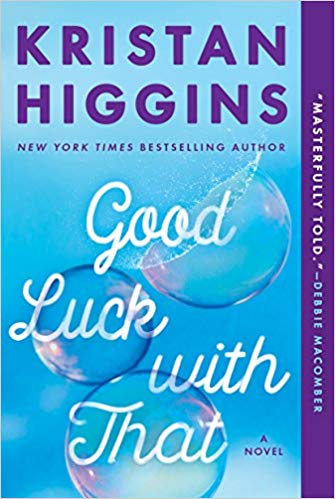 This is another of Higgins’ more recent non-romance novels. Of course, there is romance in it—two in fact—but it isn’t the focus of the book. Instead, the novel deals with how incredibly difficult it is to accept yourself and be happy when you’re a woman in America who didn’t win the gene lottery in the body size department.
This is another of Higgins’ more recent non-romance novels. Of course, there is romance in it—two in fact—but it isn’t the focus of the book. Instead, the novel deals with how incredibly difficult it is to accept yourself and be happy when you’re a woman in America who didn’t win the gene lottery in the body size department.
The book is mostly about Georgia and Marley and their relationship each other, their weight, and their friend Emerson, who dies at the beginning after becoming so large she’s housebound. The three of them met at weight-loss camp when they were teenagers and became best friends, but their lives took Emerson a different direction while Marley and Georgia actually share a house (Marley rents an apartment from Georgia in the same house).
Georgia is a pre-school teacher now, but went to Yale Law and used to be a successful New York lawyer. She also was previously married to the perfect man, Rafe, but basically ruined that marriage with her low self-confidence and eating issues. Marley is a professional she who runs her own business, delivering meals to people who don’t have time to cook. She has never been on a date, despite being a charming and happy person. She had a twin who died at four and she and her whole family have never gotten over it.
Georgia and Marley are both very likable and I definitely could empathize with their weight and food issues. Georgia has actually lost a bunch of weight but she’s having some stomach issues that she’s ignoring despite knowing better. Marley is half in love with a firefighter named Camden she knows through her brother. He sleeps with her occasionally but wants to keep it on the down low.
When Emerson dies, she leaves them with a task: carry out all the activities on a list they made when they were teens. The list was basically what they all wanted to do once they were skinny enough.
- Hold hands with a cute guy in public.
- Go running in tight clothes and a sports bra.
- Get a piggyback ride from a guy.
- Be in a photo shoot.
- Eat dessert in public.
- Tuck in a shirt.
- Shop at a store for regular people.
- Have a cute stranger buy you a drink at a bar.
- Go home to meet his parents.
- Tell off the people who judged us when we were fat.
Most of these I’ve personally never done and never will and a lot of fat women will feel the same (I have guiltily eaten dessert in public, knowing I’m being judged, and I did a photo shoot for my author photos, which was very, very uncomfortable for me).
Although she’s dead, Emerson appears throughout the story through her journals (which the two other women eventually get, so it works). She’s got a great voice even while she’s self-destructing. She makes meaningful observations like the following:
Sometimes I see girls running in their sports bras and tiny pairs of shorts, their stomachs flat, their breasts high and snug, and it’s like they’re another species.
I know what she means. Fat women are treated like a third gender.
So there’s a lot going on in this book, which is balanced pretty evenly between Marley and Georgia with a little Emerson thrown in. It takes place almost exclusively in the present. There are some other great characters in the story, too. I particularly love Georgia’s nephew Mason, who is actually believable as a sweet and oblivious 14-year-old. And Mason’s father, Georgia’s brother, is also great as a positively horrible human being. Georgia’s other family is good too, and Marley’s from a big, loving Italian family full of different personalities.
Higgins successfully pulls at the heartstrings again with this one. Fans of hers will like it, but I think it would also resonate with a lot of fat women who may not have read her yet.
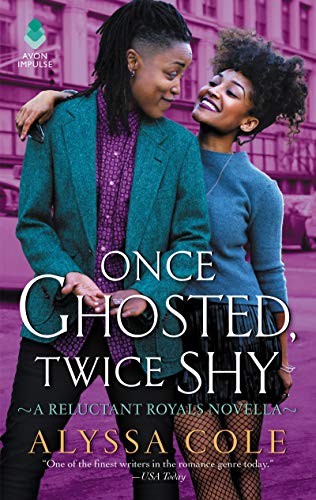 This novella features Likotsi, Prince Thabiso’s no-nonsense assistant, who we met in A Princess in Theory. The implication in that book was that she was maybe a bit of a player, but we also know something happened to/with her while she and Thabiso were in New York City. This book tells us what, as well as rights thing.
This novella features Likotsi, Prince Thabiso’s no-nonsense assistant, who we met in A Princess in Theory. The implication in that book was that she was maybe a bit of a player, but we also know something happened to/with her while she and Thabiso were in New York City. This book tells us what, as well as rights thing.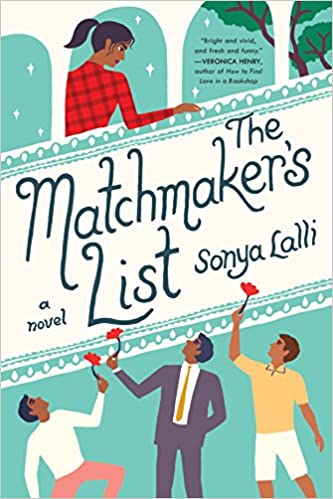 The premise of this book is simple: Raina, a half-Indian 29-year-old Canadian, has promised her (Indian) grandmother, who raised her, that she will agree to be set up on dates if she isn’t married by 30. Everyone remotely familiar with Indian culture will understand that this is a typical situation for women in their late 20s. Raina’s grandmother, Nani, jumps the gun a bit and starts harassing her early, giving her a list of suitable Indian men for her to contact and even setting up a meeting herself. Raina wants to find someone on her own, but meets some of these men, leading to some pretty funny scenes. To make matters worse, Raina’s best friend is engaged to a perfect guy, and she doesn’t seem to understand Raina’s situation.
The premise of this book is simple: Raina, a half-Indian 29-year-old Canadian, has promised her (Indian) grandmother, who raised her, that she will agree to be set up on dates if she isn’t married by 30. Everyone remotely familiar with Indian culture will understand that this is a typical situation for women in their late 20s. Raina’s grandmother, Nani, jumps the gun a bit and starts harassing her early, giving her a list of suitable Indian men for her to contact and even setting up a meeting herself. Raina wants to find someone on her own, but meets some of these men, leading to some pretty funny scenes. To make matters worse, Raina’s best friend is engaged to a perfect guy, and she doesn’t seem to understand Raina’s situation.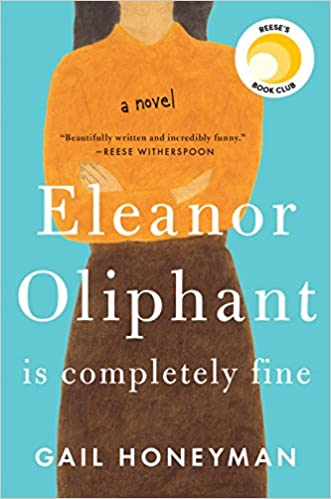 I have to say that this book isn’t the kind I normally review here, but I read it and loved it and thought I’d share. It is about a woman, so it’s in the realm of what I review, at least.
I have to say that this book isn’t the kind I normally review here, but I read it and loved it and thought I’d share. It is about a woman, so it’s in the realm of what I review, at least.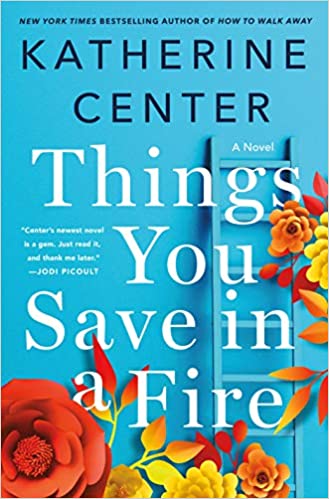 There was a lot of buzz about this book—I saw it on several high-profile writers’ recommendation lists. So I finally bought it even though it’s still in hardback. I pulled it off the precarious stack of TBR books in my bedroom and cracked it open.
There was a lot of buzz about this book—I saw it on several high-profile writers’ recommendation lists. So I finally bought it even though it’s still in hardback. I pulled it off the precarious stack of TBR books in my bedroom and cracked it open.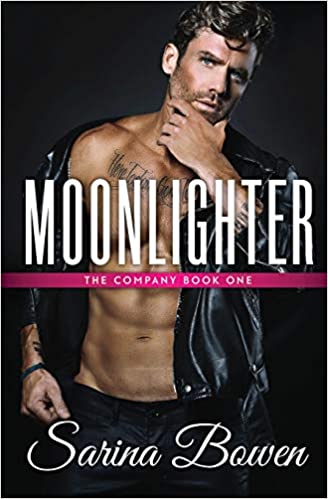 I know I’ve been seriously neglecting this blog. I have been busy and haven’t read a romance lately, so I’ve had nothing to review. But I think I’m over my reading slump, so I’m going to try to do a review at least every three weeks. Starting with one from my favorite author this week.
I know I’ve been seriously neglecting this blog. I have been busy and haven’t read a romance lately, so I’ve had nothing to review. But I think I’m over my reading slump, so I’m going to try to do a review at least every three weeks. Starting with one from my favorite author this week.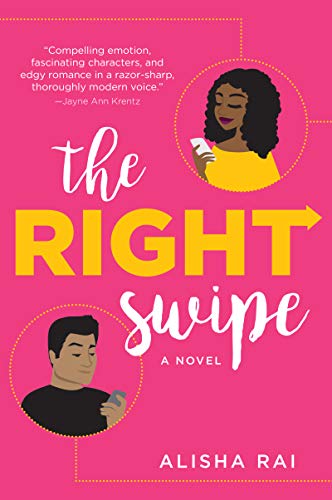 Okay, so it took me a little longer than a week or two to get to this. Life is very busy at the moment. Regardless, I was looking forward to reading this one as I’ve enjoyed Rai’s other books. It didn’t disappoint. Another book with a strong heroine and a sympathetic hero.
Okay, so it took me a little longer than a week or two to get to this. Life is very busy at the moment. Regardless, I was looking forward to reading this one as I’ve enjoyed Rai’s other books. It didn’t disappoint. Another book with a strong heroine and a sympathetic hero. This is another of Higgins’ more recent non-romance novels. Of course, there is romance in it—two in fact—but it isn’t the focus of the book. Instead, the novel deals with how incredibly difficult it is to accept yourself and be happy when you’re a woman in America who didn’t win the gene lottery in the body size department.
This is another of Higgins’ more recent non-romance novels. Of course, there is romance in it—two in fact—but it isn’t the focus of the book. Instead, the novel deals with how incredibly difficult it is to accept yourself and be happy when you’re a woman in America who didn’t win the gene lottery in the body size department. This is a followup to Hoang’s first book, The Kiss Quotient, which I liked and reviewed. The Bride Test feature’s Khai, the cousin of Michael from The Kiss Quotient. Khai’s the other character from that book who’s on the autism spectrum.
This is a followup to Hoang’s first book, The Kiss Quotient, which I liked and reviewed. The Bride Test feature’s Khai, the cousin of Michael from The Kiss Quotient. Khai’s the other character from that book who’s on the autism spectrum.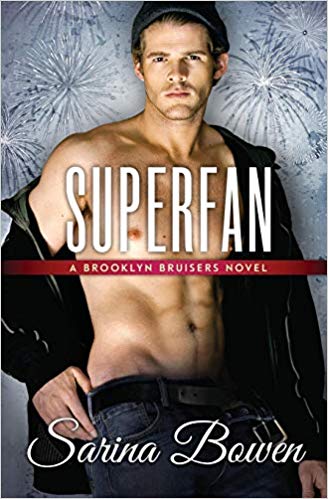 Here’s another installment in a great series by a great author. I’ve always loved Bowen’s work, and this book reminds me of why. I think it’s one of her “voiciest” yet. Her strength has always been in conveying emotional depth so well, often with characters who are in serious situations and have real issues to deal with. This one is a little more fun. The characters are still dealing with real things, but it’s less somber.
Here’s another installment in a great series by a great author. I’ve always loved Bowen’s work, and this book reminds me of why. I think it’s one of her “voiciest” yet. Her strength has always been in conveying emotional depth so well, often with characters who are in serious situations and have real issues to deal with. This one is a little more fun. The characters are still dealing with real things, but it’s less somber.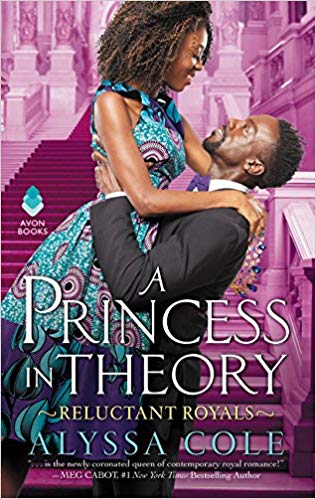 I reviewed A Duke by Default—the first in this series—a couple months ago, and now I’ve read the first. It was great to get to know Portia as she was Before, since in Duke we learned she was trying to improve herself, but we never saw exactly from what. This book shows us what Ledi has to put up with in Portia. Not that that’s the focus of the book, but the dark moment is sort of enabled by Portia (though of course it’s the hero’s fault).
I reviewed A Duke by Default—the first in this series—a couple months ago, and now I’ve read the first. It was great to get to know Portia as she was Before, since in Duke we learned she was trying to improve herself, but we never saw exactly from what. This book shows us what Ledi has to put up with in Portia. Not that that’s the focus of the book, but the dark moment is sort of enabled by Portia (though of course it’s the hero’s fault).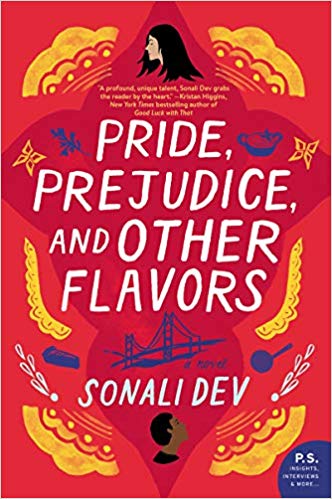 I don’t think you can be a fan of romance and not also love Jane Austen’s Pride and Prejudice (like I even needed to name the author, right?). Dev’s new standalone novel gives a big nod to that novel, without being at all derivative. First off, Dev switches the roles—in her novel, Trisha, the heroine, is the “snob” while DJ is the one she disses early on.
I don’t think you can be a fan of romance and not also love Jane Austen’s Pride and Prejudice (like I even needed to name the author, right?). Dev’s new standalone novel gives a big nod to that novel, without being at all derivative. First off, Dev switches the roles—in her novel, Trisha, the heroine, is the “snob” while DJ is the one she disses early on.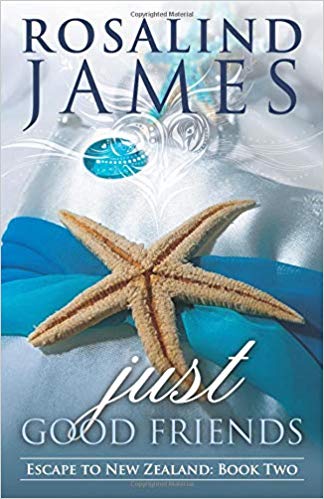 I enjoyed the first book in this series so I picked this one up with high expectations. Although I felt like the pacing was a little slow at times, it’s a good story with several things going on besides the love story itself (something I expect in a good romance novel).
I enjoyed the first book in this series so I picked this one up with high expectations. Although I felt like the pacing was a little slow at times, it’s a good story with several things going on besides the love story itself (something I expect in a good romance novel).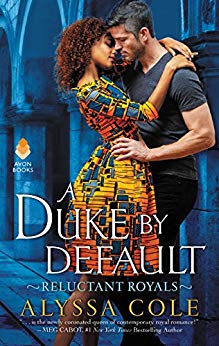 Although I’ve read Alyssa Cole before, I found out about this book because it was selected by a local library for a summer romance book club. I actually didn’t make it to the book club meeting because I didn’t manage to finish the book in time (me=busy) so I don’t know what everyone else thought of it. But I can tell you what I thought of it—it was great. Now, I love Scotland, although my taste leans more toward Glasgow, but Edinburgh will do.
Although I’ve read Alyssa Cole before, I found out about this book because it was selected by a local library for a summer romance book club. I actually didn’t make it to the book club meeting because I didn’t manage to finish the book in time (me=busy) so I don’t know what everyone else thought of it. But I can tell you what I thought of it—it was great. Now, I love Scotland, although my taste leans more toward Glasgow, but Edinburgh will do.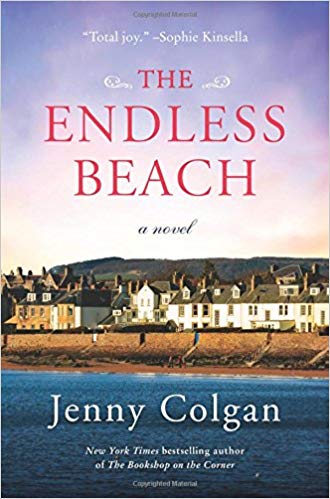 This is the the sequel to The Café by the Sea, which I reviewed here previously.
This is the the sequel to The Café by the Sea, which I reviewed here previously.